Undergraduate Study
UCL History of Art is a world-leading department within a world-leading university. Our students thrive on research-led teaching which covers the history, methods and theory of art from around the globe. With an emphasis on object-based learning, interdisciplinary study and rigorous critical thought, our programmes encourage you to see the world differently.
Our students benefit from being part of one of the biggest student communities in the UK, with more than 300 societies to get involved with including the fabulous History of Art Society, a welcoming space for students with similar interests in arts and culture. Studying with us also places you within walking distance of some of the best galleries, museums and libraries in the world, including our very own UCL Art Museum!

BA Modules 2024-2025
Find out what modules are available for study in the next academic year.
Starting your degree in September 2024? Read the first year summer reading list.
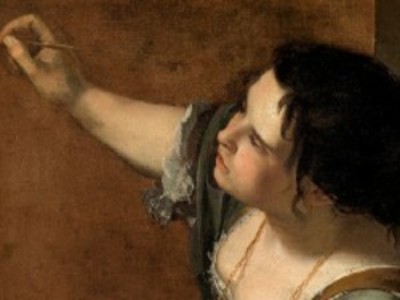
BA History of Art
Founded in 1965, our Undergraduate Single Honours Programme is a long-established course that provides a thorough grounding in the discipline of Art History as well as the opportunity to specialise in one of many areas, Middle Ages to the present day and across the globe. This programme aims to develop your knowledge and understanding of the visual arts and material culture, covering a wide range of visual imagery and making use of London's extensive public collections, libraries, museums and architecture.
In addition to offering a broad and inclusive foundation in the history of art, the BA programme allows students to focus on their specific interests both within and around the discipline, drawing from fields including anthropology, archaeology, history and philosophy. We combine close study of objects with the methodological and theoretical tools needed to interpret art today. You will be taught by leading staff committed to bringing their cutting-edge research into the classroom.
- Programme Outline
In the first year:
The emphasis is on acquiring a firm foundation in the fundamentals of art history, its topics and methodologies. You will study three core modules – History of Art and its Objects; First-Year History of Art Survey (1): Premodernity to c. 1600; First-Year History of Art Survey (2): c. 1600 to the Contemporary. These modules will give you a grounding in art history, critical thought and the significance of art within different societies and historical moments. The aim is to situate the history of art in a set of contexts that help you understand both its past significance and its relationship to contemporary concerns.
You will also take a module in a modern foreign language, and study an optional module – one out of a choice of Thematic Seminars, exploring a topic in a small group-based class taught in museums, galleries and sites around London. In addition, you will also select modules in a subsidiary subject – either anthropology, archaeology, history or philosophy.
Alternatively, instead of choosing a subsidiary subject, you can follow the History of Art, Materials and Technology (MAT) route. You will take special modules in the History of Department that will introduce the major classes of materials, media and technologies found within public and private collections, and address their application as artists’ materials.
In the second year:
You will study two core Advanced Lecture modules. Building on the first-year survey courses, these lectures each explore a significant art historical theme in depth. The topics of these modules change regularly; the offerings for 2022/23 are Advanced Lecture (1): ‘Between the Body and the Worms’: Medicine and Death in Late Medieval Art; and Advanced Lecture (2): Model/Worlds. You will also be given an opportunity to start specialising in your particular research interests and select from a wide range of optional modules dedicated to specific periods and topics (‘Period Modules’).
In addition, you will typically choose at least two of the following: History of the Category ‘Art’; Methodologies of Art History; and Methodologies of Making. These courses will hone your analytical skills and help you identify your key areas of research interest. They will also give you a thorough grounding to take forwards into your final year, especially your dissertation.
You will also continue your subsidiary subject in either anthropology, archaeology, history or philosophy. If you are following the MAT route, you will take modules that delve deeper into the technical aspects of art.
In the third year:
You will directly build on the skills and interests you have developed in the second year. You will write a dissertation of 10,000 words on a topic discussed with and supported by your tutors, in order to develop your own critical voice and theoretical rigour.
You will also have the opportunity to explore your chosen research interests by taking Special Subject modules. These modules change regularly, but their breadth and depth reflect the Department’s diverse interests and research – in 2023/24, they will include Art and Visual Culture in Early Modern England; Postcoloniality, Colonialism and Art in the British Empire; Contemporary Art and Climate Change; South African Photography: From Colonialism to the Contemporary; The Social Life of Artworks. In your final year, it is also possible to take one module from other disciplines across UCL.
If you are following the MAT route, you can also take the Art/Work/Space module that enables you to gain practical work experience outside the department while writing an independent research project reflecting critically on this experience.
- Dissertations
We are passionate about doing challenging and rigorous research at the Department of Art History, and we encourage our students to think for themselves, be bold, and learn how to do original and exacting work. Your dissertation will be an opportunity to explore a topic that interests you in-depth in order to hone your critical faculties and clarify your specialisms, be it for potential further study or an expertise required in the professional world.
- Next Steps
For details on:
-Entry Requirements
-Fees and Funding
-How to Apply
Please visit the UCL Undergraduate Prospectus- Careers and Employability
Our degree programmes offer the potential to go into a wide range of careers. We have a very strong track record of students finding work in major museums and galleries both in the UK and beyond, from the Tate in London to MoMA in New York to the National Gallery in Singapore, amongst many others. Our unique degree programme in the History of Art, Materials and Technology can also prepare students for working in specialist fine art conservation.
However, a degree in History of Art doesn’t only prepare you for working in these sectors, and we have many students who go on to build successful careers in the fields of PR, marketing and advertising, publishing, journalism and translation, or performance and the creative arts. This is because many of the key transferrable skills that our degrees will help you to develop – in critical thinking, research and writing, presentation, and visual analysis – are highly valued by these industries. You can find out more about what you can do with a History of Art degree here.
As a student in the Department, you will have access to careers support throughout your degree programme to help you develop your skills and achieve your ambitions. There is a dedicated departmental careers tutor and a wide range of events and opportunities offered by the UCL Careers team, including additional support from the UCL Careers Extra scheme for eligible students. The University also offers opportunities for entrepreneurship, networking with alumni, and volunteering, as well as numerous student-run societies that are oriented towards specific sectors and potential future careers for UCL students.- Support and Wellbeing
UCL offers a wide range of support both during the application process and once you are enrolled as a student. Please follow the links below to find out more.
- Fees and Funding: There is lots of advice and information available on funding your studies, as well as a range of bursaries and scholarships that you may be able to apply for.
- The application process: If you are thinking of applying to UCL and meet certain eligibility criteria, you may be able to benefit from Access UCL, which is an alternative offer scheme for students from groups that are underrepresented at UCL. You may also be able to take advantage of the many events and opportunities offered by the Access team for Year 12 & 13 students.
- Support once you’re here: Every student in the Department is assigned a personal tutor, who is there to provide support and encouragement during your studies. In addition, every first year undergraduate is matched to a Transition Mentor, who is a second or third year student from your degree programme, and all students have access to the UCL Writing Lab and the services offered by the Student Support and Wellbeing team. Some students may also benefit from the additional support offered by the teams working in our Equality Areas.
- FAQs
- Contact
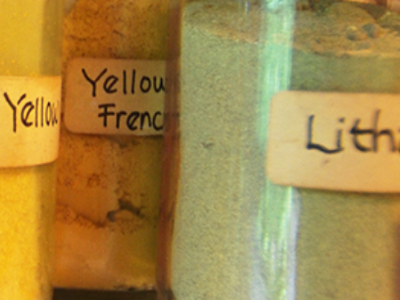
BA History of Art, Materials and Technology
The History of Art, Materials and Technology route within our standard BA History of Art programme provides a unique focus on works of art as physical objects, combining knowledge of art history with questions of materiality and technology.
From 2023/24, you will be able to follow this new route which will develop your knowledge and understanding of works of art as physical objects. In addition to the comprehensive skills in art history you will learn from the standard modules, you will also gain a thorough understanding of artists’ techniques, methods of making art, and questions of materiality and technology, both at the time the work of art was made, and subsequently as it ages and changes.
As well as making use of London’s extensive public collections, libraries, museums and architecture, the degree route draws on the resources of the History of Art Department’s Material Studies Laboratory and media reference collection. In doing so it stimulates intellectual and personal development, and equips students to carry out projects individually and collectively, to communicate effectively and to pursue academic research or take up responsible positions in a wide variety of job contexts. More broadly, it develops understanding of the value of intellectual reflection and of a critical understanding of cultural production.
Teaching in History of Art, Materials and Technology route reflects the tutors’ specialisms and ranges across the application of science and analytic techniques in the arts, understanding technologies of vision, the materiality of contemporary art, themes related to film, video and installation, the material lives of performances, digital art, oral histories, and the history, theory and philosophy of conservation.
- Cabinet of Obsolete Media
The Cabinet of Obsolete Media has been conceived as a teaching collection of media and technologies of the image at the UCL Department of History of Art. The Cabinet aims to collect devices and technologies that represent the development of media art, particularly as resources for academic art historical study and reference. Staff, research students and BA and MA students are welcome to engage with the Cabinet as an aid to familiarise themselves with the materiality of technologies and facilitate object-based learning.
The collection includes a magic lantern, stereoscope, the stereoscopic camera, patheorama and folding half plate camera, a selection of photographic cameras, film projectors, cathode ray tube monitors, stacks of 16mm and 8mm films, magnetic and analogue computer storage media and a solid overview of analogue and digital video tape formats. This collection enhances the Department’s holdings of reference materials such as the collection of binding media and pigments which is housed in the Material Studies Laboratory. The Cabinet is growing and accepts donations.
A selection of images of items from the collection can be found on our Instagram page.
- Staff
Academics
- Apply
Our BA route in History of Art, Materials and Technology includes a variety of courses designed specifically for this degree route, such as Introduction to Art and Science, Introduction to Media and Technologies, Methods and Materials of Artists, Methodologies of Making and Art/Work/Space—a work placement module offering the students a possibility to gain work experience in London institutions. In addition to these specialised modules, students may take a selection of other art history modules taught in the Department. Students interested in following this route should apply to the BA History of Art programme in the first instance.
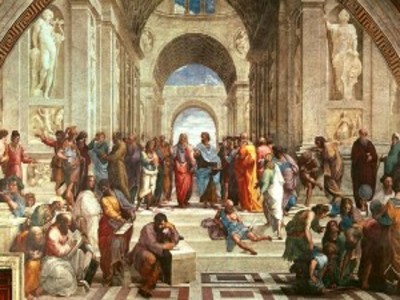
- Overview
Our combined honours programmes offer two separate streams — the Modern Languages and History of Art BA, which is available for: French, German, Italian, Dutch, Spanish, Portugese, and Scandinavian Languages, and the Philosophy and History of Art BA.
Both programmes aim to develop your knowledge and understanding of visual arts and material culture, complete with either expert knowledge of your chosen modern language and the broader culture that surrounds it, or an in-depth understanding of a range of central philosophical debates. Your home department will be either at the School of European Languages and Cultures, or the Department of Philosophy, but you will take approximately 50% of your modules in History of Art. In both programmes, you will encounter a wide range of visual imagery, making use of London's extensive public collections, libraries, museums and architecture.
The History of Art stream will offer you a comprehensive training in the analysis and interpretation of art from the Middle Ages to the present day. While the focus has traditionally been on European art, we are now continuously expanding our geographic outlook and, together with our students, we are working towards the decolonisation of our curriculum. Our academic and teaching staff specialisations include British, French, German and Italian visual culture, the Americas including pre-Columbian art, and modern and contemporary art in Africa. Our staff research and teaching interests span a diverse history and geography; and we also have specialists in the history of materials and technology. We aim to equip students with the ability to critically analyse how artworks interact with their contexts, both in terms of their making and their reception.
In the Philosophy programme, all major areas of Philosophy are available for study; you will address issues about the very nature of art and about human perception of visual culture. You will be able to construct and assess philosophical positions and arguments, thereby teaching you how to analyse and present complex ideas. You will hone your skills for rigorous argumentation, as well as your clarity of thought and expression.
In the Modern Languages programme, you will benefit from a strong focus on spoken and written language work. You will gain linguistic and cultural understanding of another set of cultures, and develop your knowledge of their art, literature, history, film and politics. UCL is an ideal environment for language study, offering a huge range of state-of-the-art facilities, a large international population, and a location at the heart of a cosmopolitan, multilingual city.
- Programme Outline - Philosophy and History of Art BA
In the first year:
The emphasis is on acquiring a firm foundation in the fundamentals of both art history and philosophy. You will study three core art history modules – History of Art and its Objects; First-Year History of Art Survey (1): Premodernity to c. 1600; First-Year History of Art Survey (2): c. 1600 to the Contemporary. These modules will give you a grounding in art history, critical thought, and the significance of art within different societies and historical moments.
You will also select two philosophy modules from a range that includes Introductions to the History of Philosophy; Introductions to Logic; introductions to Moral Philosophy and Political Philosophy, and more.In the second year:
You will study two core Advanced Lecture Courses in the History of Art. The topics of these modules change regularly; in 2022/23 the offerings were Advanced Lecture (1): ‘Between the Body and the Worms’: Medicine and Death in Late Medieval Art; and Advanced Lecture (2): Model/Worlds.
You will also be given an opportunity to select from a wide range of optional modules in both History of Art and Philosophy. In History of Art, this typically includes at least one out of the following: History of the Category ‘Art’; Methodologies of Art History; Methodologies of Making; and one thematic period course.
In Philosophy, this includes modules across three groups – Theoretical Philosophy, Normative Philosophy, History of Philosophy. These courses will hone your analytical skills and help you identify your key areas of research interest. They will also give you a thorough grounding to take forward into your final year dissertation.In the final year:
You will build directly on the skills and interests you have developed in the second year. One of the modules taken in History of Art can be a dissertation of 10,000 words on a topic discussed with and supported by your tutors. This will help you develop your own critical voice and theoretical rigour.
You will also have the opportunity to explore your chosen research interests by taking special subject modules. You will either take two special subject courses (running over both terms) or one special subject course plus the History of Art Dissertation. These modules change regularly, but their breadth and depth reflect the Department’s diverse interests and research. In 2022/23, these included Art and Visual Culture in Early Modern England; Postcoloniality, Colonialism and Art in the British Empire; Black Poetics; Art and Visual Culture in Modern South Asia; Inventing Incas, Aztecs, and Europeans; South African Photography: From Colonialism to the Contemporary; The Social Life of Artworks.
Further selection of BA Philosophy modules- Programme Outline - Modern Languages & History of Art BA
In the first year:
The emphasis is on acquiring a firm foundation in the fundamentals of both art history and your chosen language. You will take 60 credits of modules from History of Art, including the core course History of Art and its Objects. These modules will give you a grounding in art history, critical thought and the significance of art within different societies and contexts. Module examples from 2022-23.
You will also choose from a range of cultural, literature, history, film and linguistics first-year modules related to your chosen language, or ELCS (European Languages, Culture & Society) modules – these are humanities-based modules which complement the language-specific teaching, open to students from all School of European Languages, Culture & Society (SELCS) languages.In the second year:
You will study two core Advanced Lecture Courses in the History of Art.
You will start developing your own areas of research interest, with a chance to pick from a wide range of optional modules in both History of Art and Modern Languages. In History of Art, this includes two of the following: History of the Category ‘Art’; Methodologies of Art History; Methodologies of Making.
In Modern Languages, this includes a range of cultural, literary, historical, film and linguistics intermedia modules related to your chosen language, or ELCS modules (if not taken in year one). These courses will hone your analytical skills and help you identify your key areas of research interest. They will also give you a thorough grounding to take forward into your final year dissertation.In the third year:
Your Year Abroad is spent in a country where your target language is spoken.In the final year:
You will directly build on the skills and interests you have developed in the previous academic years. You will take a core compulsory advanced module in your chosen language, and you will also choose from a range of cultural, literature, history film and linguistics first-year modules related to your chosen language, or ELCS (European Languages, Culture & Society) modules.
You will also take 60 credits of final-year modules from History of Art. The topics of the special subject courses change regularly, but their breadth and depth reflect the Department's diverse interests and output. In 2020/21 they included Visual Culture in Early Modern England, Psycho, and Postcoloniality, Colonialism and Art in the British Empire. One of the modules taken in History of Art can be a dissertation of 10,000 words on a topic discussed with and supported by your tutors. This will help you develop your own critical voice and theoretical rigour.
By the end of your final year you should have exceptional language fluency, and a profound understanding of the cultures and contexts relating to your chosen language. You will also have an ability to interpret and analyse art across both geography and history, and a theoretical language and framework that will be of fundamental value to you whatever path your career takes.
The Combined Honours degree allows you to develop an in-depth specialisation in the art and cultures of the countries in which your chosen language is spoken.- Dissertations
At UCL History of Art, we are passionate about conducting challenging and rigorous research; we encourage our students to think for themselves, be bold, and learn how to create original and exacting work. Your dissertation will be an opportunity to explore a topic that interests you in-depth, hone your critical faculties, and clarify your specialisms for potential further study.
- Next Steps
For details on:
-Entry Requirements
-Fees and Funding
-How to Apply
Please visit the UCL Undergraduate Prospectus- FAQs
- Contact
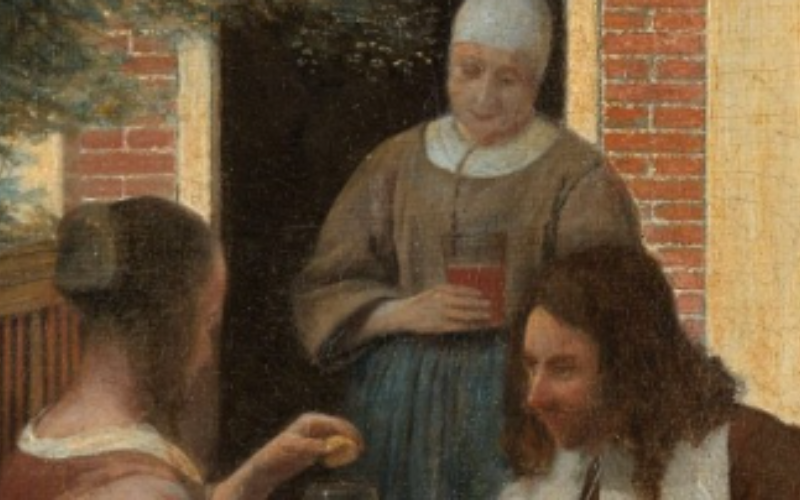
Destination Art History
Where could a UCL History of Art degree take you?
Find out about what careers support we offer and what our alumni have gone on to do.
Banner Image: Mont Sainte-Victoire, Paul Cézanne, 1904-06.
 Close
Close


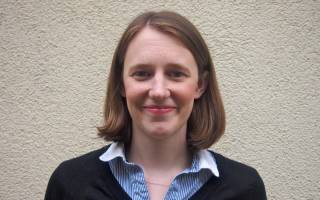
 Senior UG Teaching and Learning Administrator
Senior UG Teaching and Learning Administrator